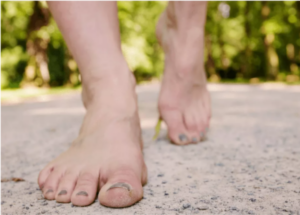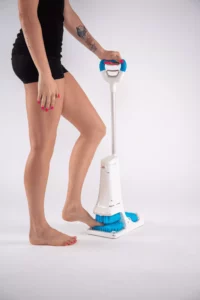The question, “Will the scrubber damage my shower floor?” is a common concern among homeowners who are keen on maintaining the pristine condition of their bathrooms. In truth, the impact of a scrubber on your shower floor depends on several factors. This article will delve into various aspects that influence the potential effect a scrubber may have on your shower floor, providing you with comprehensive insights to make informed decisions about your bathroom maintenance routines.
Firstly, we will examine the material composition of the shower floor, which plays a significant role in determining its durability and resistance to scrubbing. Different materials such as ceramic, porcelain, stone, or acrylic, each have their unique properties and tolerances.
Secondly, the type of scrubber used is equally crucial. With a plethora of scrubbers available in the market, from hard-bristled brushes to soft sponges and microfiber cloths, it’s vital to match the right scrubber with your floor type to prevent damage.
Thirdly, even the most suitable scrubber, if misused, can cause damage. Hence, we will consider the proper usage of a scrubber, focusing on techniques that effectively clean without causing unnecessary wear and tear.
Our fourth point of discussion will look into the potential effects of chemical cleaning agents. Some harsh chemicals can damage both your shower floor and the scrubber, affecting their lifespan and functionality.
Lastly, we will provide tips on the maintenance and care for shower floors, helping you extend the life of your bathroom fixtures while preserving their aesthetics.
Stay tuned for an enlightening exploration of these topics, designed to guide you in keeping your shower floors clean, safe and damage-free.
Material Composition of the Shower Floor
The material composition of your shower floor is a crucial factor to consider when examining the potential for a scrubber to cause damage. Different materials have varying levels of resilience and susceptibility to damage, and understanding these aspects can help you make an informed decision about the kind of scrubber to use.
For instance, shower floors made from natural stones like marble or travertine can be easily scratched or etched by harsh scrubbing or abrasive cleaners. These materials are more delicate and require a gentler approach to cleaning. On the other hand, ceramic and porcelain tiles are much more durable and can withstand more robust scrubbing without sustaining damage.
In the same vein, fiberglass and acrylic shower floors, while resistant to most types of damage, can be scratched if a scrubber with hard bristles is used. It’s always important to check the manufacturer’s instructions or consult with a professional to understand the best cleaning practices for your specific type of shower floor.
In conclusion, the material composition of your shower floor plays a significant role in determining whether a scrubber will cause damage. Always ensure that you understand the nature of your shower floor material and use a scrubber that is appropriate to avoid unnecessary damage.
Type of Scrubber Used
The type of scrubber used in cleaning your shower floor plays a significant role in determining whether or not it will cause any damage. Given that different scrubbers are designed for unique purposes, it is crucial to choose the right one for your shower floor.
For instance, some scrubbers are made with harsh bristles meant to scrub off tough stains and grime. While these scrubbers may be effective in cleaning, they can potentially scratch or damage your shower floor, especially if it’s made of delicate material like porcelain or glazed tile. Therefore, it’s essential to use these types of scrubbers with care, or avoid them altogether if your shower floor is susceptible to scratching.
Alternatively, there are softer scrubbers available on the market that are designed for more delicate surfaces. These are typically made with non-abrasive materials such as silicone, microfiber, or soft nylon. They can effectively clean your shower floor without causing any damage.
In summary, the type of scrubber used is key in answering the question, “Will the scrubber damage my shower floor?” It is always recommended to understand the material of your shower floor and choose a scrubber accordingly to prevent any potential damage. Regular maintenance and proper care will also go a long way in preserving the integrity and look of your shower floor.
Proper Usage of a Scrubber
The Proper Usage of a Scrubber is a crucial subtopic when addressing the question: Will the scrubber damage my shower floor? It is not just the scrubber or the shower floor’s material composition that plays a significant role in potential damage, but also how the scrubber is used.
Using a scrubber improperly can cause more harm than good. For example, applying too much pressure while scrubbing can scratch or wear down the surface of the shower floor, especially if it’s made from delicate materials. This is why it’s important to understand the correct way to use a scrubber on different types of surfaces.
The proper usage of a scrubber also involves understanding the type of scrubber suitable for a particular surface. For instance, softer scrub brushes or non-abrasive scrubbers are best for delicate surfaces to avoid causing scratches. On the other hand, harder surfaces may require stronger scrubbers for efficient cleaning.
Moreover, the scrubbing motion should be considered as well. It is advised to scrub in a circular motion rather than a back-and-forth movement, which can cause grooves over time. Scrubbing in a circular motion also helps to cover a larger area and ensures the cleaning agent, if any, is evenly distributed.
In conclusion, the proper usage of a scrubber is a fundamental element in ensuring your shower floor remains undamaged during cleaning. It’s always important to understand the characteristics of the scrubber and the shower floor’s material to ensure they are compatible and that the scrubbing technique used does not harm the surface.
Potential Effects of Chemical Cleaning Agents
The potential effects of chemical cleaning agents on your shower floor is a significant consideration when addressing the question: Will the scrubber damage my shower floor? Chemical cleaning agents can have a substantial impact on the overall durability and aesthetic appearance of your shower floor, especially when used in conjunction with a scrubber.
The composition of chemical cleaning agents varies widely. Some are harsh and abrasive, containing substances such as bleach or ammonia, while others are more mild and natural, incorporating elements like vinegar or baking soda. The type of cleaning agent you use can directly affect the condition and longevity of your shower floor.
Strong, harsh chemicals can cause discoloration, dullness, and even scratches on certain types of shower floor materials such as acrylic, porcelain, or fiberglass. This is especially true if these chemicals are used in combination with a hard-bristle scrubber, which can amplify potential damages.
On the other hand, milder, more natural cleaning agents, when used properly, tend not to inflict the same level of damage. However, their cleaning efficacy might not be as high as their harsher counterparts. Therefore, it’s crucial to find a balance between maintaining a clean shower floor and preserving its condition and appearance. To achieve this, consider the type of scrubber and cleaning agent you use, and ensure they are suitable for your specific shower floor material.
Maintenance and Care for Shower Floors
Maintaining and caring for shower floors is a crucial aspect in preserving their quality and appearance over time. This task involves the use of appropriate cleaning tools, techniques, and agents. The question of whether a scrubber will damage the shower floor often comes up in this context.
The answer to this question is largely dependent on the type and quality of the scrubber used, as well as the material of the shower floor. For instance, using a scrubber with harsh bristles on a delicate tile surface may result in scratches and other forms of damage. On the contrary, a soft-bristled scrubber or a sponge can effectively clean the shower floor without causing any harm.
Additionally, the method of using the scrubber also plays a significant role. Vigorous scrubbing can be harmful to the shower floor, leading to surface degradation over time. Therefore, it’s recommended to gently scrub the floor in a circular motion, which is typically sufficient to remove dirt and stains without causing any damage.
The frequency of cleaning also matters when it comes to maintenance and care for shower floors. Regular cleaning prevents the build-up of dirt and grime, which if left unattended, could require more aggressive scrubbing. Therefore, consistent light cleaning can help maintain the integrity of the shower floor.
It’s also worth noting that the use of appropriate cleaning agents is a key factor. Some chemical cleaning agents can react negatively with certain floor materials, causing discoloration or even corrosion. Therefore, it’s advisable to use mild, non-abrasive cleaning agents that are suitable for the specific material of your shower floor.
In conclusion, while the use of a scrubber can potentially damage your shower floor, this risk can be effectively mitigated through the careful selection and use of the scrubber, and the adoption of proper maintenance and care practices for your shower floor.




